- 0086-571-85302990
- sales@greenskybio.com
Organic konjac powder, Australia.
2024-11-30

1. Introduction to Konjac Powder
Konjac Powder, sourced from the konjac plant, is a unique and increasingly popular ingredient, especially in Australia. The konjac plant, native to Asia, has been used for centuries in traditional medicine and cooking. Konjac Powder is made by processing the corms (underground stems) of the konjac plant. It has a jelly - like texture when hydrated and is known for its various beneficial properties.
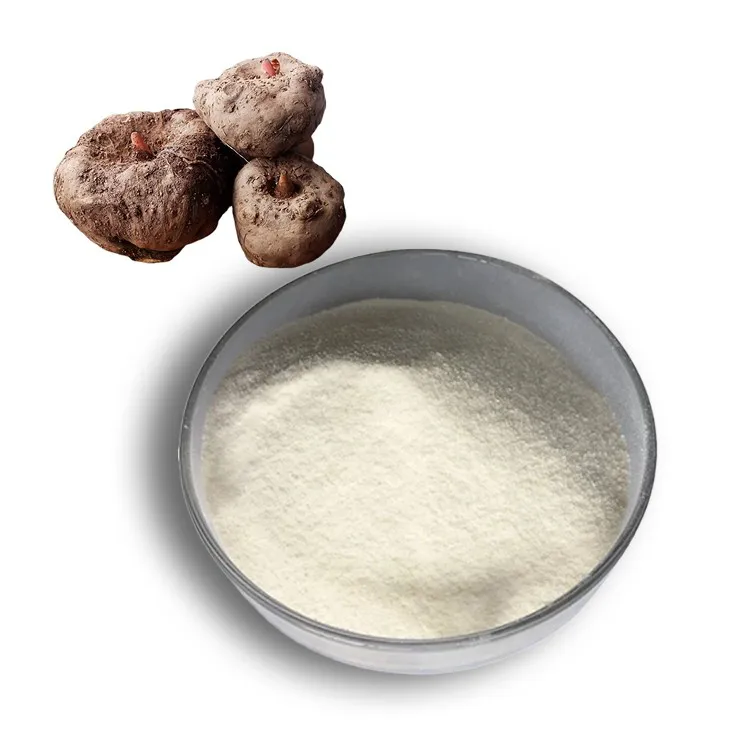
2. The Trend of Organic Products in Australia
Australia has witnessed a significant upsurge in the demand for organic products in recent years. Consumers are becoming more conscious about what they consume and are actively seeking products that are free from pesticides, synthetic fertilizers, and genetically modified organisms (GMOs). This trend is driven by several factors:
2.1 Health Consciousness
People are more aware of the potential health risks associated with consuming non - organic products. They believe that organic products are more nutritious and better for overall well - being. For example, in the case of fruits and vegetables, organic produce is thought to have higher levels of certain vitamins and antioxidants.
2.2 Environmental Awareness
There is a growing concern among Australians about the environmental impact of conventional farming methods. Organic farming practices are generally more sustainable as they focus on soil health, water conservation, and biodiversity. Consumers who are environmentally - aware prefer to support products that are produced in an environmentally - friendly manner.
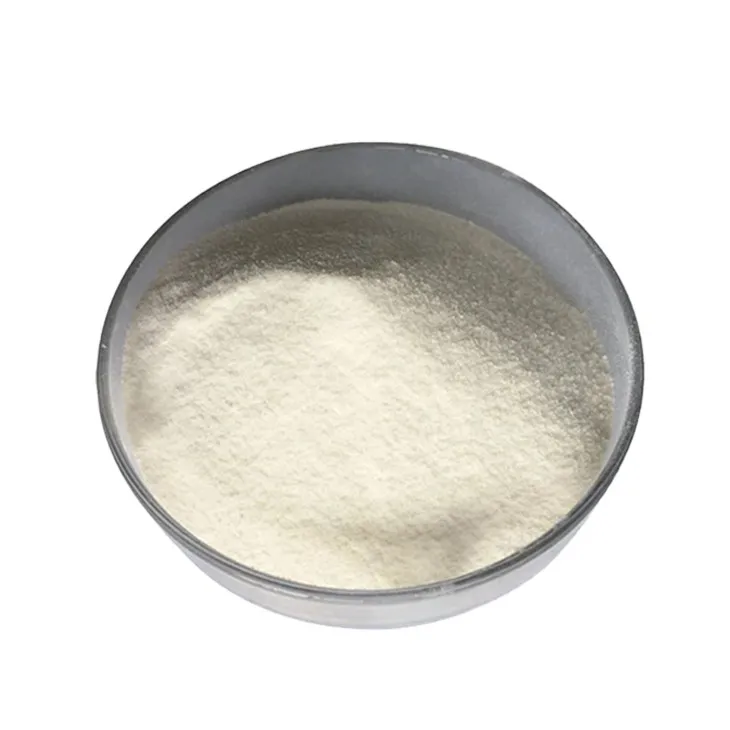
3. Nutritional Benefits of Organic Konjac Powder
Organic konjac powder offers a range of nutritional benefits, which make it an appealing choice for many Australians:
3.1 High in Dietary Fiber
One of the most significant advantages of konjac powder is its high dietary fiber content. Dietary fiber is essential for a healthy digestive system. It helps to add bulk to the stool, preventing constipation and promoting regular bowel movements. For instance, a study has shown that consuming konjac - based products can increase the frequency of bowel movements in individuals with constipation.
3.2 Promotes Satiety
Konjac powder can also promote a feeling of fullness or satiety. This is due to its ability to absorb water and expand in the stomach. When consumed before a meal, it can reduce appetite and potentially help with weight management. In a weight - loss study, participants who included konjac - containing products in their diet reported feeling less hungry between meals compared to those who did not.
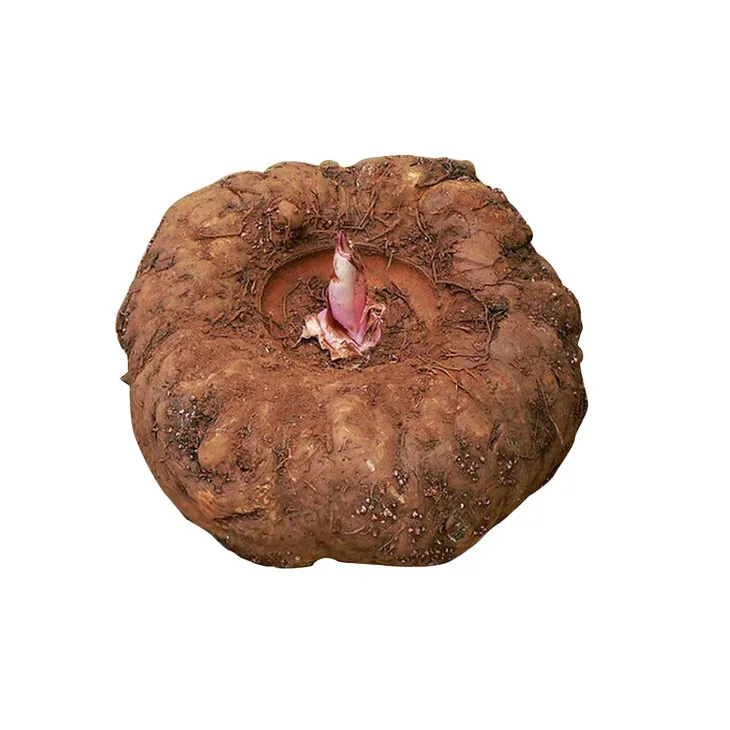
4. Culinary Uses of Organic Konjac Powder
Organic konjac powder is a versatile ingredient in the kitchen and can be used in a variety of ways:
4.1 Gluten - Free Noodles
With the increasing prevalence of gluten - intolerance and celiac disease in Australia, the demand for gluten - free alternatives has risen. Konjac powder can be used to make gluten - free noodles. These noodles have a similar texture to traditional wheat - based noodles but are suitable for those with gluten sensitivities. They can be used in various Asian - inspired dishes such as stir - fries and noodle soups.
4.2 Low - Calorie Desserts
For health - conscious consumers who still want to enjoy desserts, konjac powder offers a solution. It can be used to create low - calorie desserts. For example, konjac - based jelly desserts can be sweetened with natural sweeteners like stevia and flavored with fruit juices. These desserts are not only low in calories but also high in fiber, making them a guilt - free treat.
4.3 Thickening Agent
Konjac powder can act as a thickening agent in cooking. It can be added to soups, stews, and sauces to give them a thicker consistency without adding a lot of calories. This is particularly useful for those who are watching their calorie intake but still want to enjoy rich - tasting dishes.
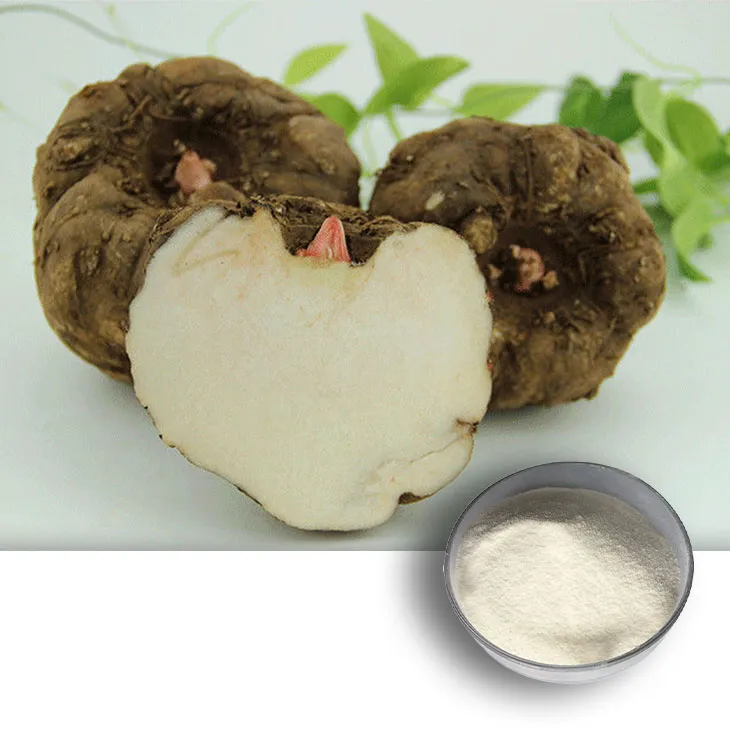
5. Production of Organic Konjac Powder in an Environmentally - Friendly Way
The production of organic konjac powder often adheres to environmentally - friendly practices:
5.1 Sustainable Farming
Organic konjac farming typically involves the use of natural fertilizers such as compost and manure. This helps to improve soil fertility without the use of synthetic chemicals. Additionally, organic farmers often practice crop rotation, which helps to prevent soil erosion and the build - up of pests and diseases.
5.2 Water Conservation
Many konjac farmers are conscious of water usage and implement water - saving techniques. For example, they may use drip irrigation systems that deliver water directly to the roots of the plants, reducing water wastage. This is especially important in regions where water is a scarce resource.
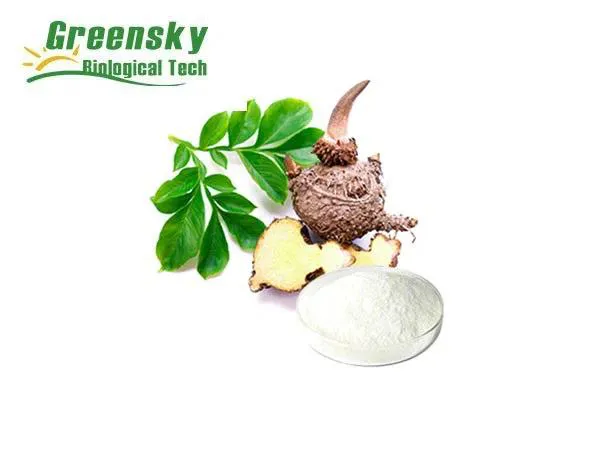
6. Marketing and Availability of Organic Konjac Powder in Australia
As the demand for organic konjac powder grows in Australia, its marketing and availability have also increased:
6.1 Supermarkets and Health Food Stores
Most major supermarkets in Australia now stock organic konjac powder. It can be found in the health food section, often alongside other specialty ingredients. Health food stores also offer a wider range of konjac - based products, such as pre - made konjac noodles and konjac - enhanced supplements.
6.2 Online Retail
The internet has made it easier for consumers to access organic konjac powder. There are numerous online retailers that sell a variety of konjac products. This has increased the availability of different brands and types of konjac powder, allowing consumers to compare prices and read product reviews before making a purchase.
7. Future Prospects of Organic Konjac Powder in Australia
The future looks promising for organic konjac powder in Australia:
7.1 Continued Growth in Demand
As more Australians become aware of the health and environmental benefits of organic konjac powder, the demand is likely to continue to grow. This could lead to an increase in production and potentially lower prices as economies of scale come into play.
7.2 Product Innovation
There is also room for product innovation. Manufacturers may develop new konjac - based products, such as ready - to - eat snacks or functional foods. These new products could attract a wider range of consumers and further expand the market for konjac powder.
FAQ:
What is organic konjac powder?
Organic konjac powder is a product made from the konjac plant. It is produced following organic standards, which usually involve no use of synthetic pesticides, fertilizers, or genetically modified organisms during cultivation. It has unique properties and is rich in dietary fiber.
Why is organic konjac powder becoming popular in Australia?
In Australia, the demand for organic products is increasing. Organic konjac powder is rich in dietary fiber, which aids digestion and promotes a feeling of fullness. It can be used in various cooking and food preparation, such as making gluten - free noodles or low - calorie desserts. Also, Australian consumers are more health - conscious and environmentally - aware, and it is often produced in an environmentally - friendly way.
How can organic konjac powder help with weight management?
Organic konjac powder is rich in dietary fiber. The fiber can absorb water and expand in the stomach, which promotes a feeling of fullness. This can help people eat less and thus is an attractive option for those who want to manage their weight.
What are the uses of organic konjac powder in cooking?
It can be used in multiple ways in cooking. For example, it can be used to make gluten - free noodles, which are suitable for people with gluten intolerance. It can also be used in making low - calorie desserts, adding a unique texture and nutritional value to the food.
Is organic konjac powder good for gut health?
Yes, it is. Since it is rich in dietary fiber, it can help improve gut health. Dietary fiber can act as a prebiotic, promoting the growth of beneficial bacteria in the gut.
Related literature
- Title: The Benefits of Organic Konjac Powder in Modern Diets"
- Title: "Organic Konjac Powder: A Sustainable and Healthy Ingredient"
- Title: "Konjac Powder in the Australian Organic Food Market"
- ▶ Hesperidin
- ▶ citrus bioflavonoids
- ▶ plant extract
- ▶ lycopene
- ▶ Diosmin
- ▶ Grape seed extract
- ▶ Sea buckthorn Juice Powder
- ▶ Beetroot powder
- ▶ Hops Extract
- ▶ Artichoke Extract
- ▶ Reishi mushroom extract
- ▶ Astaxanthin
- ▶ Green Tea Extract
- ▶ Curcumin Extract
- ▶ Horse Chestnut Extract
- ▶ Other Problems
- ▶ Boswellia Serrata Extract
- ▶ Resveratrol Extract
- ▶ Marigold Extract
- ▶ Grape Leaf Extract
- ▶ blog3
- ▶ blog4
-
How to make powder with bayberry extract?
2024-11-30
-
The best peony root extract in nature.
2024-11-30
-
100% Pure Organic Baicalin.
2024-11-30
-
Organic Cordyceps Extract Powder Suppliers.
2024-11-30
-
Red Wine Extract
2024-11-30
-
Cocoa Extract
2024-11-30
-
Cassia Seed Extract
2024-11-30
-
Mulberry Extract
2024-11-30
-
Golden Seal Extract
2024-11-30
-
Soy Extract
2024-11-30
-
Lily extract
2024-11-30
-
Bamboo Leaf extract
2024-11-30
-
Marigold Extract
2024-11-30
-
Lavender Extract
2024-11-30





















